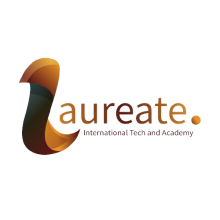Migration Abroad Tips
English
Last updated
Mon, 13-Jan-2025
Migration to the United Kingdom (UK)
Visa and Immigration: Prospective migrants should explore visa options like the Skilled Worker Visa, Student Visa, or Family Visa. The UK's points-based immigration system emphasizes skills, qualifications, and salary thresholds.
Healthcare: Enrol in the National Health Service (NHS) for healthcare coverage. Understanding the NHS system and registering with a local GP is crucial.
Employment: Familiarize with the UK job market and employment laws. Professional qualifications may need to be accredited in the UK.
Accommodation: Research the housing market, including rental cost and locations, before moving. Consider proximity to work, schools, and public transport.
Cultural Adaptation: The UK has a diverse culture. Understanding local customs, etiquette, and the importance of politeness and queuing is helpful.
Financial Considerations: Open a UK bank account and understand the taxation system. Consider the cost of living in different regions.
2.Migration to the United States of America (USA)
Visa and Immigration: Research visa options like H-1B (work), F-1 (student), or family-based visas. The Green Card (Permanent Residency) is a key step for long-term settlement.
Healthcare: The USA does not have universal healthcare. Private health insurance is essential.
Employment: Understand the US job market and prepare accordingly. Certain industries may require specific certifications or licenses.
Accommodation: Housing costs vary widely between cities and rural areas. Research and plan according to your budget and lifestyle needs.
Cultural Diversity: The USA is highly diverse, and cultural norms can vary significantly across regions.
Financial Planning: Manage finances effectively, including understanding credit scores, taxation, and retirement planning.
3. Migration to Canada
Visa and Immigration: Explore pathways like Express Entry for skilled workers, Provincial Nominee Programs, or family sponsorship. Language proficiency in English or French is crucial.
Healthcare: Canada offers public healthcare, but it varies by province. Understand your provincial healthcare system and registration processes.
Employment: Credential recognition and Canadian work experience are valuable for job prospects. Networking and understanding Canadian workplace culture are important.
Accommodation: Research housing markets in different provinces. Consider factors like climate, job opportunities, and community life.
Cultural Integration: Canada is known for its multiculturalism. Engaging with community programs can aid in cultural integration.
Financial Matters: Familiarise with the Canadian banking system, taxation, and cost of living in different regions.
4. Migration to Dubai, UAE
Visa and Residency: Employment visas are common, and sponsorship from an employer is typically required. The UAE also offers long-term residency options like the Golden Visa.
Healthcare: Health insurance is mandatory in Dubai. Understand the healthcare system and insurance policies.
Employment: The job market is competitive. Knowledge of Arabic can be beneficial, but English is widely used in business.
Accommodation: The real estate market offers various options, from apartments to villas. Renting is common, and understanding lease agreements is important.
Cultural Norms: Respect local customs, traditions, and laws. Dubai is cosmopolitan but adheres to Islamic principles.
Financial Considerations: Dubai has no personal income tax, but it's important to understand the cost of living and manage finances accordingly.
In conclusion, migration requires thorough planning and understanding of legal, cultural, and financial aspects. It's advisable to conduct comprehensive research and possibly consult with migration experts or legal advisors to navigate the process smoothly.
In conclusion, successfully migrating to a country such as the UK, USA, Canada, or Dubai entails much more than just obtaining the appropriate visa; it requires comprehensive preparation and an understanding of a wide range of factors. Prospective migrants should consider the following key points:
1. Research and Planning: Prior to moving, conduct extensive research on various aspects of life in the destination country, including the job market, healthcare system, housing, and cultural norms. This preparation can greatly ease the transition.
2. Legal and Compliance Awareness: Stay informed about immigration laws and regulations, which can frequently change. Compliance with these laws is critical to avoid legal complications.
3. Financial Management: Understanding the cost of living, banking systems, taxation, and financial planning in the new country is crucial for stability and prosperity. This may include budgeting for initial expenses upon arrival.
4. Cultural Integration: Embracing and respecting the local culture and social norms is vital for a smooth integration into society. This can involve learning the local language, understanding social etiquettes, and participating in community activities.
5. Networking and Community Building: Building a network, both professionally and socially, can provide significant support. Engaging with diaspora communities and local groups can offer valuable guidance and friendship.
6. Health and Wellbeing: Adjusting to a new environment can be challenging. Prioritise health and wellbeing, including understanding how to access healthcare services and ensuring adequate health coverage.
7. Continuous Learning and Adaptation: Be prepared to continually learn and adapt to your new environment. Flexibility and openness to change are key to successfully navigating the complexities of living in a new country.
